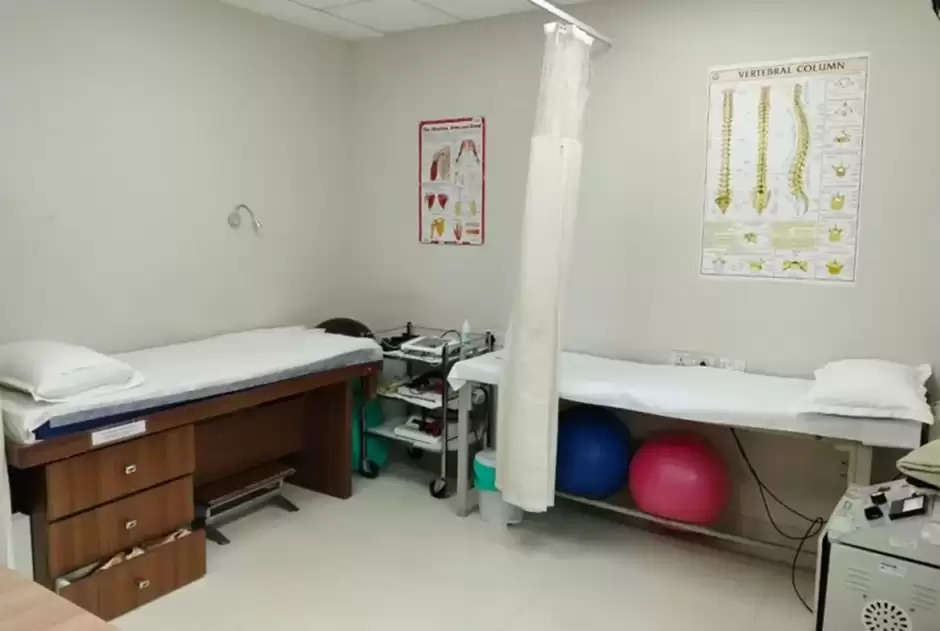Why Pediatric Physiotherapy is Crucial for Children's Health and Development

Paediatric physiotherapy is a lifeline for many children struggling with various physical conditions. As the pace of our lives keeps everyone on their toes, ensuring children grow up healthy and strong plays a fundamental role. Through specialised care and tailored exercises, children can achieve their full potential and grow in a healthy environment.
Here's a look into why paediatric physiotherapy matters and how it can significantly benefit the health and development of children.
Understanding Pediatric Physiotherapy
Paediatric physiotherapy specialises in treating infants to adolescents, tackling issues from simple developmental delays to more complex neurological disorders.
- Coverage: This therapy addresses everything from common injuries and developmental delays to more severe conditions like cerebral palsy or muscular dystrophy.
- Significance: Early intervention can correct or reduce problems before they become more severe, setting up a child for healthier growth.
- Customisable Approach: Therapies are customised to fit each child's unique developmental stage and specific needs, ensuring they receive the most effective care.
- Integration with Other Therapies: Paediatric physiotherapy is often part of a broader therapeutic approach which includes occupational or speech therapy.
- Family-Centred Care: Emphasises the involvement of the family in the therapy process, providing guidance and support for home-based care routines.
- Use of Play: Utilises play-based techniques that make therapy enjoyable and relatable to children, helping them engage more effectively with the treatment.
Common Conditions Treated by Pediatric Physiotherapy
Children face various physical challenges as they grow, and this physiotherapy is equipped to manage them effectively.
- Developmental Challenges: Helping children who lag in hitting developmental milestones like walking or coordination.
- Breathing Difficulties: Assisting with respiratory conditions to improve breathing and lung function.
- Postural Correction: Working to correct poor posture that can lead to long-term issues.
- Functional Skills Development: Aiming to improve everyday functional skills including balance and Coordination, Enhancing a child's ability to perform daily activities smoothly and confidently
- Autism and ADHD: Utilising sensory integration and motor skills activities to enhance focus, coordination, and overall function in children with Autism and Attention Deficit Hyperactivity Disorder.
- Cerebral Palsy & Birth Disorders: Offering specialised treatments to improve movement, muscle strength, and coordination for children born with cerebral palsy and other birth-related disorders.
- Neuro Muscular Disorders: Providing therapy for conditions such as muscular dystrophy and spinal muscular atrophy to maintain and improve muscle strength and mobility.
Benefits of Pediatric Physiotherapy
The advantages of starting physiotherapy early can be transformative, impacting physical health and overall life quality.
- Skill Enhancement: Significantly improves motor skills, crucial for daily activities and school performance.
- Building Strength: Develops muscle strength and endurance, which are vital as children grow and become more active.
- Managing Pain: Offers strategies to reduce or eliminate pain, helping children enjoy a more active life.
- Fostering Independence: Encourages self-reliance in kids by improving their physical capabilities.
- Quality of Life: Boosts participation in school and social activities, enhancing overall well-being.
- Injury Prevention: Promotes safe and effective ways to engage in physical activity, reducing the risk of injuries.
- Emotional and Psychological Benefits: Helps improve the overall emotional and psychological well-being by boosting their confidence and social skills.
- Adaptability and Resilience: Enhances children's ability to adapt to physical challenges and builds resilience through continuous physical improvement.
- Long-term Health Benefits: Establishes a foundation for healthy physical habits that can last a lifetime.
What to Expect in a Pediatric Physiotherapy Session
Knowing what happens in a session can help parents and children feel more at ease with the process.
- First Evaluation: Your child will undergo a comprehensive assessment to pinpoint their specific needs.
- Setting Goals: You'll work together to set realistic goals, whether improving posture, walking, or jumping.
- Fun and Engaging: Sessions are often game-based, making therapy fun and engaging for children.
- Involving the Family: Therapists often show parents activities that can be done at home to support their child's progress.
Choosing the Right Pediatric Physiotherapist
Selecting the right therapist fit for your child can make a big difference in their development and recovery.
- Specialised Knowledge: Look for therapists who specialise in paediatric care, as they'll have a better understanding of children's needs.
- Proven Experience: A therapist with a track record of successfully treating children's conditions can be more effective.
- Kid-Friendly Environment: The clinic should be welcoming and designed to put children at ease.
- Clear Communication: Choose someone who communicates clearly and can explain the treatment in simple terms.
- Positive Reinforcement: A positive and encouraging therapist can greatly enhance a child's motivation and enjoyment.
- Community Recommendations: Ask other parents or healthcare providers for recommendations to find trusted therapists.
- Accessibility and Availability: Consider the therapist’s availability and the ease of scheduling appointments.
- Cultural Sensitivity: Choose a therapist who is culturally sensitive and can respect and understand your family’s values and needs.
Conclusion
Paediatric physiotherapy offers more than just medical treatment; it provides a foundation for better health and development. By addressing physical issues early on, paediatric physiotherapists improve children's quality of life and equip them with the strength and confidence to face the world.
So, if your child is facing physical challenges, considering paediatric physiotherapy or searching for physical therapy near me might just be the best step forward for their future.



